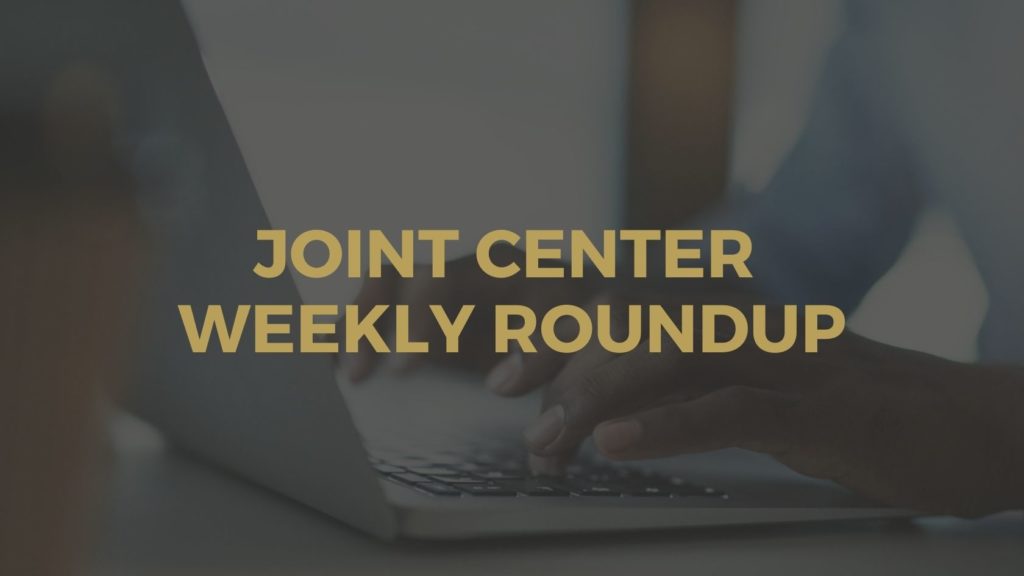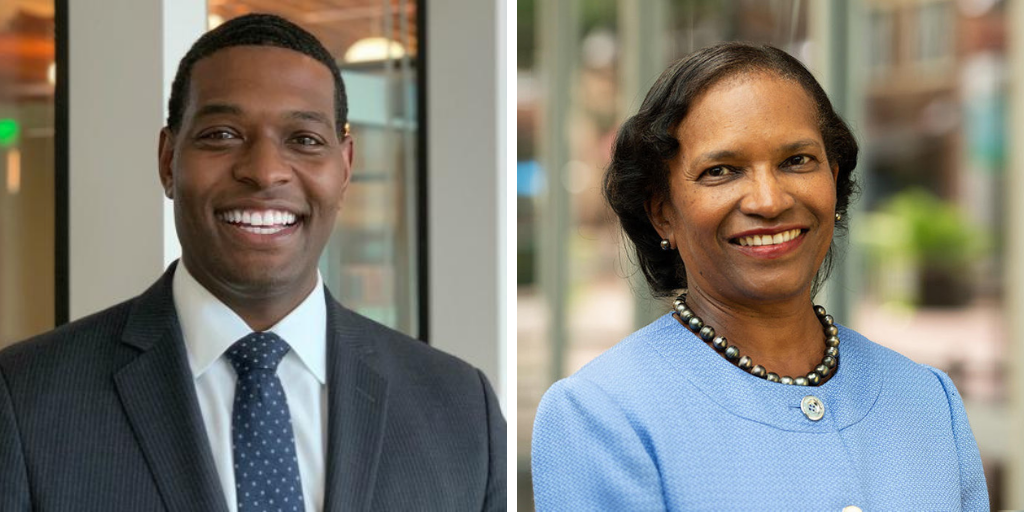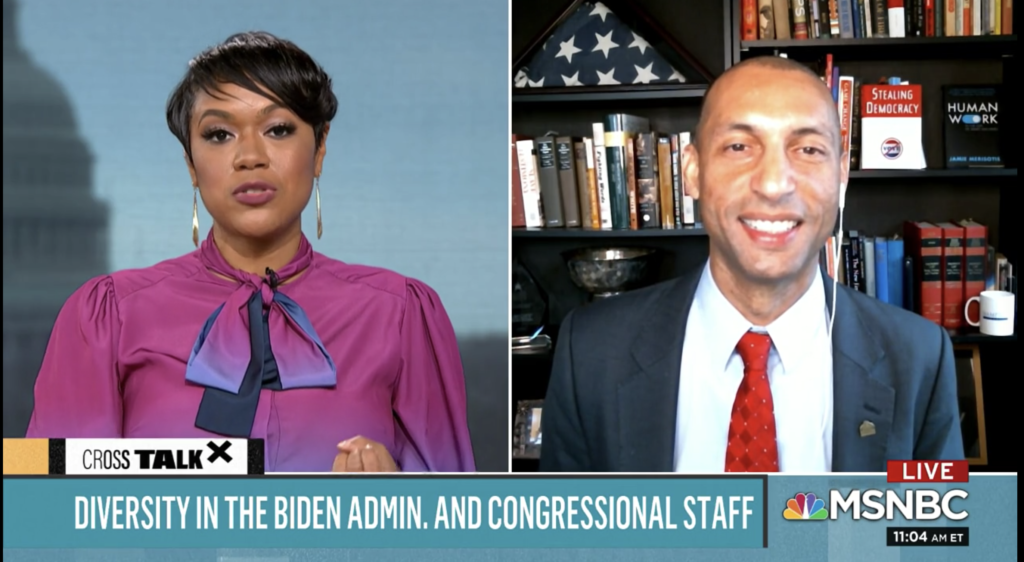
Stimulus Talks Continue, Biden Picks Black Environmental Leaders: Dec. 17 Joint Center Roundup
In addition to our regular updates on COVID-19 policy and Black communities, the Joint Center’s weekly roundup will now regularly include the latest updates key to Black communities on the Biden-Harris administration, tech policy, economic policy, and Hill diversity. We hope you enjoy our new format!
GOP and Democrats Continue Stimulus Negotiations
Government open, for now: Congress narrowly averted a government shutdown when the Senate approved a temporary funding measure (via voice vote) which President Trump signed into law.
Dueling relief bills: Agreement on a new round of coronavirus relief remains stymied as negotiations focus on competing proposals, a $908 billion bipartisan Senate plan and a $916 billion plan from the White House. The $908 billion bipartisan proposal includes the extension of federal unemployment benefits, a new round of Paycheck Protection Program loans, and $7 billion in direct grants to states, territories, and tribes for COVID-19 testing and tracing.
Biden Picks Black Environmental Leaders

Biden chooses Michael Regan (pictured left) to lead the Environmental Protection Agency: Regan is currently the secretary of the North Carolina Department of Environmental Quality. If nominated and confirmed, Regan would be the first African American male to lead the agency.
Biden selects Brenda Mallory (pictured right) to Chair the White House Council on Environmental Quality: Mallory is currently Director of Regulatory Policy at the Southern Environmental Law Center, and previously served as General Counsel at the CEQ and Principal Deputy General Counsel at the Environmental Protection Agency. If confirmed, Mallory would be the first African American to Chair the Council.
Biden Team meets with Black advocacy leaders: Treasury Secretary-designee Janet Yellen and Deputy Treasury Secretary-designee Wally Adeyemo met with Color of Change President Rashad Robinson, Color of Change Board Chair Heather McGhee, Black to the Future Fund Founder Alicia Garza, Community Change Action Co-President Dorian Warren, Black Economic Alliance Executive Director David Clunie, and others to discuss systemic economic challenges and centering racial equity in the economic recovery. At a separate gathering, transition leadership met with Rev. Dr. William J. Barber and the Poor People’s Campaign.
Stop career-shaming: Retired Ambassador Michael A. Lawson wrote an op-ed for the Seattle Times calling for people to stop career-shaming talented Biden appointees of color “solely on the fact that they have worked for or in a private-sector and publicly-held company.”
COVID-19

Fear at work: Black workers who do not work from home and interact with others in the workplace are more likely (70 percent) than white workers (48 percent) to be concerned about being exposed to the virus, according to a new Pew survey.
Overcoming vaccine skepticism: Black doctors face the challenge of convincing Black people, who are three times more likely than white people to die of COVID-19, to get a coronavirus vaccine. Less than 50 percent of African Americans say they would get the vaccine versus 61 percent of white people. Morehouse School of Medicine President Valerie Montgomery Rice is among the Black health leaders working to engage African Americans on the importance of getting vaccinated.
Jobless claims spike: As local governments order restrictions amid increasing COVID-19 cases, initial weekly unemployment claims spiked to 885,000 the week ending Dec. 12, up from 862,000 the prior week. The pre-pandemic initial weekly claims record was 695,000, set in 1982.
PUA claims jump: Including the 428,000 claims for Pandemic Unemployment Assistance for gig and freelance workers, initial unemployment claims totaled 1.3 million as of Dec. 5, according to Economic Policy Institute estimates.
Striking job loss for Black women: 15.8 percent of Black women aged 20-24 and 9 percent of Black women over age 20 were unemployed in November, the National Women’s Law Center finds.
Uneven job loss: Massive New York City job loss from COVID-19 is concentrated in mostly Black and Latina/o pockets of the city, according to the New York Times.
Evictions loom: Nearly 29 percent of African Americans are behind on rent and utilities, the Washington Post reports, underscoring the need for additional coronavirus relief. The Centers for Disease Control and Prevention’s moratorium on evictions is set to expire at the end of the year, increasing concerns of escalating evictions and foreclosures in the absence of additional coronavirus relief, according to the Center on Budget and Policy Priorities.
Economic Policy
Jobless put on notice: Three things workers receiving jobless benefits should prepare for in the coming months, according to Michele Evermore, senior policy analyst at the National Employment Law Project: 1) PUA overpayment notices for some; 2) Pandemic Emergency Unemployment Compensation termination notices beginning December 26; and 3) continuing to advocate for unemployment insurance reform.

Black farmers in peril: Noting that Black farmers constitute a tiny percentage of American farmers, Bloomberg Opinion columnist Adam Minter explores how Senator Cory Booker’s (D-NJ) new bill could begin to address the racial disparities in agriculture.
Biden to help small businesses: Third Way outlines how the Biden administration plans to support small businesses, including investing more than $50 billion in Black and Brown entrepreneurs by solidifying the New Markets Tax Credit and funding various successful state and local initiatives, among other efforts.
Future of Work & Learning
Black students suffer most: Learning losses from school closures due to the coronavirus pandemic continue to disproportionately impact Black students. While the share of Black students with access to devices for school increased by 10 percentage points to 89 percent. In comparison, 93 percent of white students had such access. Given the greater job loss and hunger in low-income and minority families, Rep. Susie Lee (D-NV) and Communities in Schools President Rey Saldaña argue for wrap-around services for low-income students.
CEOs step up: OneTen, a coalition of nearly 40 CEOs, vows to create 1 million jobs for Black workers primarily without college degrees.
Tech Policy
Google mea culpa: Amid fierce backlash, Google CEO Sundar Pichai apologized for firing Timnit Gebru, a Black scientist who led the company’s Ethical Artificial Intelligence team. More than 2,000 Google employees signed a letter alleging her firing over a research paper dispute was “retaliatory.” Congresswoman Yvette Clarke (D-NY), Senator Cory Booker (D-NJ), and seven other members sent a letter to Pichai urging him to “reaffirm his commitment to D&I and academic freedom.”
It’s complicated: Researchers are identifying the complex factors that contribute to facial recognition algorithms misidentifying African Americans and other people of color.

New UCLA study on digital divide during the pandemic: 36 percent of Black students had limited or no access to a computer or the internet compared with 28 percent of white students, according to a recent UCLA study on COVID-19 and disparities in digital learning.
Hill Diversity

Joint Center pushes for diversity in hiring: The Hill provides an overview of the Joint Center’s recent work calling on incoming Members of Congress to hire more African Americans and other people of color for senior and mid-level staff positions. Our August study found that only 11 percent of top Senate staffers were people of color. Joint Center President Spencer Overton discussed the findings of our August report on MSNBC’s The Cross Connection with Tiffany Cross as well as the need for diversity in the President-elect Biden’s cabinet choices.
Equity-centered job descriptions: Creating a more diverse and inclusive workplace on the Hill, says Representative Democracy, starts with a focus on equity-centered job descriptions for new Senate staff.
Re-fund diversity training: House Financial Services Committee Chairwoman Maxine Waters (D-CA) calls on President-elect Biden to rescind Trump’s executive order prohibiting the use of federal funds for diversity training, along with other steps to make diversity and inclusion a priority of the new administration.
Student hunger: With community colleges facing a plethora of challenges exacerbated by the coronavirus crisis, a survey of students finds that more than two-thirds of Black community college students were worried about feeding themselves or their families.
Movement Building
Alabama Arise petitions Senator Richard Shelby (R-AL) to vote YES on a bipartisan COVID-19 relief package that funds food, child care, housing, and unemployment assistance.
Ella Baker Center for Human Rights creates a toolkit to encourage people to give public comment to the 2020 Penal Code Committee in California.
The NAACP Legal Defense and Educational Defense Fund, Inc. President and Director-Counsel Sherrilyn Ifill and several other civil rights leaders met with President-elect Biden and Vice President-elect Harris to “discuss how their administration will approach key civil rights and racial justice issues.”
The NAACP Legal Defense and Educational Defense Fund, Inc. issues a campaign to Congressional members to swiftly pass a new COVID-19 relief bill.
Rainbow PUSH Coalition hosts a Winter Wrap Drive to provide hats, scarves, and gloves to children in need.
Events
Upcoming events include How to Craft an Annual Fundraising Plan in Uncertain Times (The Chronicle of Philanthropy, January 14).
Last week, events were held by the Economic Policy Institute, National Urban League, New America, Politico, The Boston Globe, Third Way, Transgender Law Center, and the Urban Institute.
Podcasts
How is Biden’s presidential transition going? (Brookings Institution)
Capitol Hill is still overwhelmingly white (NPR’s Marketplace)
#TellBlackStories Black Businesses Greenbook (Color of Change)
The Joint Center thanks the Annie E. Casey Foundation, the Boulé Foundation, the Democracy Fund, Toyota Motor North America, Inc., UPS, and the Walmart Foundation for additional support that has allowed us to do some of our COVID-19 and Black Communities work.
To receive the Joint Center’s emails, sign-up here.
Join our exclusive newsletter community that’s at the forefront of driving change for Black communities in America.
Stay informed, engaged, and empowered – subscribe now to amplify your impact and be part of a movement dedicated to dismantling barriers and fostering true freedom for Black Americans.

